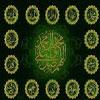
Indeed, Imam al-Jawad (A.S.) played his role and shared in enriching the scholarly school during the period of his leadership, which lasted nearly 17 years, and, also, safeguarded its patrimony. That period (of the Holy Imam) was distinguished by two things: Dependence on text and narration of the Messenger of Allah (S.A.W.) and, also, on an accurate understanding and deduction of both the Book (the Quran) and Prophet’s traditions (Sunnah).
In addition to this, the Holy Imam’s concern for intellectual knowledge and science, in which, the Imams of Ahlul-Bait and their students participated greatly, in developing, enriching, and expanding its circles to the extent that it became a lofty declaration and a well-fortified fortress for the Islamic thought and Sharia.
Imam al-Jawad (A.S.), like his forefathers (A.S.), used different means to carry out his scientific procedures, among them are:
1. The means of teaching and instructing those students and scholars and urging them to write and record and, also, sustain what comes from the Holy Imams of Ahlul-Bayt (A.S.) or by bidding them to the art of writing, publishing, and classifying.
Sheikh Tusi in his book "Rijal", mentioned the number of the close companions of Imam al-Jawad (A.S.) and his narrators, who studied and were educated under his care to be about one hundred, including two women.
Indeed, all these religious scholars quoted Imam al-Jawad (A.S.) and wrote many books in different fields of Islamic sciences and knowledge. They enriched Islamic schools with true, original researches and thoughts.
This fact is proved in the books of "Rijal" which mentioned the close companions of Imam al-Jawad (A.S.) and, in which, they explained their conditions, their publications and writings.
imam javad
2.The means of appointing deputies and commanding them to spread out in different parts of the Muslim lands in order to be true callers to Islam, follow it and convey its divine laws.
Books of history have recorded the correspondences of Imam al-Jawad (A.S.) with his deputies who were spread in different parts of the Muslim world in order to convey Islamic faith and what they learned from the jurisprudence of the Household of the Holy Prophet (S.A.W.) and their knowledge.
3.The means of scholarly debates and discussions. The books of traditions and narrations, have recorded for us, richly, discussions and debates in different kinds of sciences and knowledge and defending Islam and fixing its pillars in the fields of monotheism, jurisprudence, interpretation, and narrations and so on.
These discussions contained different researches. Among them were: Defending Islam and countering perverse ideas and deviated philosophies and ideologies whic existed among the Muslims. And, also, repairing the ideological deviations which existed among certain Muslims, such as: Exaggeration and incarnations and others or discussions to explain Islam and clarify its diverse fields.
source : tebyan













